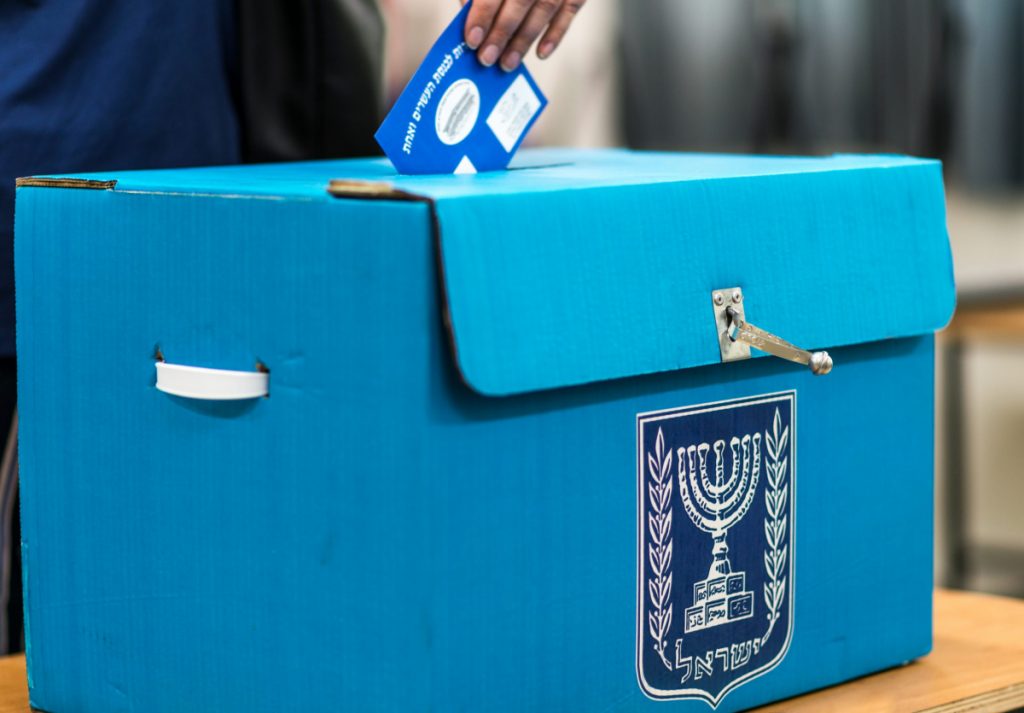IN THE MEDIA
Stability is at stake
July 4, 2022 | Colin Rubenstein

A fifth election in just over three years will be critical for the future of Israel and Middle East
Daily Telegraph – 4 July 2022
On June 20, a year and one week after it was sworn in, Israel’s 36th government ended with a press conference.
Embattled Prime Minister Naftali Bennett, by now the head of a broken and divided Yamina (“Rightwards”) party, announced he would be stepping down.
He further announced his coalition partner and current Foreign Minister Yair Lapid, the chairman of the Yesh Atid (“There is a future”) party, would become Israel’s interim PM until an election is held.
Lapid has now been sworn in and Bennett has announced he will not be contesting this election, turning over the top spot in Yamina to Interior Minister Ayelet Shaked. The election is set for November 1.
Some Israeli analysts and politicians are now referring to the remarkably broad and politically diverse outgoing unity coalition as an “experiment” which failed.
However, despite the government’s short lifespan, there is no disputing the fact this political experiment achieved some positive and important outcomes.
The experiment was principally about Israeli identity. The eight different parties in the unwieldy coalition stood for ideologies covering the entire political spectrum from left to right.
Particularly groundbreaking was the inclusion in the Government of the Islamist Ra’am party, without which a majority government could never have been formed.
Party leader Mansour Abbas’ decision to break a long-held political taboo by Arab parties and seek to be part of a government coalition not only profoundly changed the way a growing number of Israel’s Arab minority population relate to the power of their vote in furthering their interests but also political thinking among Israel’s Jewish majority.
The future implications of this significant move should not be underestimated.
It legitimised full Israeli-Arab political participation in governance.
Indeed, after all, Abbas was also courted by the centre-right Likud after the last election.
It proved yet again that Arab Israelis, who constitute 20 per cent of Israel’s citizens, have the potential to be an important, inherent and integral part of the Jewish state, without endangering either Israel’s identity or security.
Finally, it offered a model for mutually respectful and beneficial relationships between the state and the Israeli Arab sector of society, including serious joint efforts to tackle the major problems afflicting that sector, such as crime and inadequate infrastructure investment.
The outgoing government can also point to other important practical achievements.
After almost two years of political paralysis, and four election campaigns in 24 months all ending in deadlock, the Bennett-Lapid government was able to govern reasonably effectively for that year, including passing a budget in November 2021 – the first in almost four years – and keeping the economy progressing on an even keel.
In foreign policy, the government continued the momentum created by former PM Benjamin Netanyahu and extended the historic 2020 Abraham Accords with a series of impressive new agreements and meetings with the UAE, Morocco, Bahrain, Egypt and Jordan.
Ties with the US Biden administration improved and the long shadow of Iran’s terror and sprint toward nuclear weapons led to closer strategic co-operation with the US and important regional allies, spearheaded by Saudi Arabia.
A final point often missed by analysts is that this government’s rise and fall in fact indirectly demonstrates the strength and vibrancy of Israel’s democracy.
Thus, it is thoroughly ironic when Israel’s enemies gloat over its supposed political weakness, as Hamas spokesperson Fawzi Barhoum recently did, declaring that “the collapse of the Bennett government is a testament to the fragility and weakness of the Zionist entity”.
The last elections held in the Palestinian Authority (PA) were in 2006 and they resulted in a bloody Hamas takeover of Gaza. Since then, internal Palestinian rivalry has only intensified.
What those like Barhoum cannot comprehend is that, by ensuring state leaders can be replaced in an orderly and legitimate fashion, Israel’s functioning democracy limits corruption, nepotism, civil strife and abuse of power – problems which severely plague both the Palestinian Authority and Hamas-run Gaza.
The election on November 1 will be the fifth in Israel since April 2019.
At the centre of the political storm remains former PM and current opposition leader Netanyahu, who is currently being tried on charges of bribery, corruption and breach of trust and lost the support of a majority of Israelis regardless of their political bent.
The upcoming campaign, which will likely pit Likud’s Netanyahu against incoming PM Lapid, will reveal whether enough voters’ minds have been changed over the past year to deliver a more decisive and stable result.
For all the frustration Israelis likely feel about yet another election looming, what towers above the political fray is the robustness of Israel’s democracy and its government institutions.
The recent extended period of political instability again suggests certain electoral reforms may be needed to help provide more decisive and stable outcomes.
Yet overall, Israel, as one of the world’s oldest democracies, remains committed and able to provide checks and balances, protection of free speech and equal rights and freedoms valued in the West but almost nonexistent in many parts of the world, especially in its own region.





